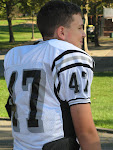I am Harry's Grandaughter
 | |
| Harry Hartmann, Aug. 17, 1920, age 21. Catskills, NY |
Harry Hartmann's death was sudden—he had none of the health issues that come to mind when thinking of an octogenarian. He was healthy, spry, mentally acute, active, and very involved in his grand kids' lives. I was 13 at the time and my brother was about to turn 12. On Monday, January, 7th, my mother went to work, we kids went to school, came home, did chores, misbehaved a bit, and went to bed. Sometime in the wee hours of Tuesday morning, Grampa had a stroke, was taken to the hospital, and died about 4 hours later.
That day is one of those days that you look upon later in life and recognize as a turning point. A seminal moment. Not a page turned so much as a chapter very definitively closed. Until that moment, my mother could go to work or out to dinner with my stepfather happy in the knowledge that her two tween-age monsters were safe and cared for. We kids could come home from school to a snack and a few moments of Grampa-approved clandestine TV watching. He was a buffer to my mother’s strict rules and quick wrath. He was a constant in our lives that we, as kids, could not imagine would ever change.
But change it did. Our innocence was lost as grief clawed at my family for years after my grandfather’s death. My mother’s grief, of course, was deeper than ours. As such, she was unable to help us cope with ours. Mom and Dad were divorced and we kids were deeply estranged from his extended family: there were no paternal aunts, uncles, or cousins on deck to step in. We had just moved barely 5 months earlier, so whatever network of friends and neighbors was also gone. My mother had her partner to comfort her when she needed comforting, and for that I’m grateful. But even knowing that, I know there was a part of her that just shut down.
My brother and I became latchkey kids. Our buffer was gone. We acted out and got into trouble we would not have gotten into had an adult been present when we got home from school. Our mother, who was strict but largely absent before her father’s death became even more restrictive. We resented her deeply for this. We probably blamed her unfairly for the changing family dynamic. The early teenage years present perils of their own—teenage angst, peer pressure, the awkward years of trying to forge an identity of one’s own. Couple that with a lack of supervision, a lack of friends and neighbors who knew us, and a sense of resentment and you have a recipe for disaster. It was the early 1980s on the outskirts of New York City—there was plenty of trouble waiting to swallow us up.
I sometimes wonder how life might have turned out if my grandfather had lived another 3 or 4 years. Just until we got over the hump of our early teens when the trajectory of our lives might have been a little more in focus. Or if our mother was able to better express her, and assuage our, grief. If we coalesced instead of shattered. Pointless musings for sure. All of our lives went on as days and years unfolded, filled with triumphs, setbacks, trouble, course corrections, and ordinary days.
But there were fractures that went untended. Unmended. Our lives were not just bereft of a person but of potential. We were, though perhaps unconsciously, divided, and unprepared for the inevitable. All of us unable to access each other fortified ourselves as separate silos. Those silos exist to this day. Now 44 years after the death of a short, funny, toothless, bespectacled, old man. The corporeal now celestial body around which we all orbited was gone. Every single one of us still misses him greatly.


No comments:
Post a Comment